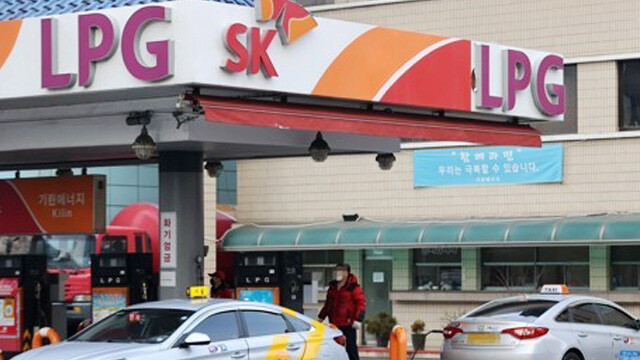
SEOUL, South Korea – South Korea's leading liquefied petroleum gas (LPG) suppliers, SK Gas and E1, have announced a reduction in their domestic supply prices for June, offering some relief to consumers and industries. This move reflects a comprehensive assessment of international LPG prices and the prevailing foreign exchange rates.
Effective June 1st, SK Gas has lowered its propane price by 30 won per kilogram (kg) to 1,344.81 won/kg. Butane prices also saw a reduction of 17.52 won per liter (L), settling at 983.78 won/L. Similarly, E1 set its June prices for household and commercial propane at 1,345.25 won/kg, and industrial propane at 1,351.85 won/kg, both marking a 30 won/kg decrease from the previous month. Butane from E1 is now priced at 984.36 won/L, down by 17.52 won/L.
E1 stated that the decision to lower prices was made after "comprehensively considering international LPG prices and exchange rates." This highlights the significant influence of global market dynamics on domestic energy costs in import-reliant South Korea.
Factors Driving the Price Reduction
The primary drivers behind this latest price adjustment are the trends in the international LPG market and the Korean Won's stability against the US Dollar. International LPG prices, often benchmarked against Saudi Aramco's Contract Prices (CPs), are subject to a complex interplay of global supply and demand, crude oil prices, and geopolitical stability. LPG is a byproduct of crude oil refining and natural gas processing, making its price closely linked to fluctuations in global oil markets. A decrease in these international benchmarks would directly translate to lower import costs for South Korean suppliers.
Furthermore, the strength of the Korean Won against the US Dollar plays a crucial role. Since LPG is predominantly traded in US dollars, a stronger won means that Korean importers can purchase the same amount of LPG for fewer won, reducing their costs. While the Korean government extended its fuel tax cut until the end of June to ease consumer burden, it did partially roll back the level of reduction on LPG from 23% to 15% starting May 1st. Despite this partial rollback, the overall trend in international prices and exchange rates has created enough headroom for suppliers to pass on savings to consumers.
Broader Market Context and Outlook
South Korea is a major importer and consumer of LPG, with significant demand coming from the petrochemical sector, residential heating, and the autogas market. While overall global gas demand growth is expected to slow in 2025 amidst macroeconomic uncertainties, the Asia-Pacific region, including South Korea, remains a significant market. In 2024, South Korea had one of the highest per capita LPG consumption rates globally.
The energy market in South Korea is undergoing a significant transition, driven by a strong push toward renewable energy and an expansion of nuclear power to reduce reliance on fossil fuels and meet decarbonization goals. However, traditional energy sources like LPG continue to play a vital role in the energy mix.
For 2025, South Korea's total primary energy demand is expected to see a modest increase of around 0.5%, with slower growth in energy-intensive industries compared to 2024. Natural gas demand, which includes LPG, is projected to increase, particularly from the manufacturing sector, although growth in power generation demand might slow. The government's long-term energy plans, such as the 11th Basic Plan for Long-Term Electricity Supply and Demand, aim to increase the use of carbon-neutral energy sources, but fossil fuels will remain part of the energy landscape for the foreseeable future.
The domestic LPG price reduction for June reflects a momentary alignment of favorable international market conditions and exchange rates, providing welcome relief for South Korean consumers and businesses. However, the long-term trajectory of LPG prices will continue to depend on the volatile global energy market and the ongoing national energy transition.
[Copyright (c) Global Economic Times. All Rights Reserved.]






























